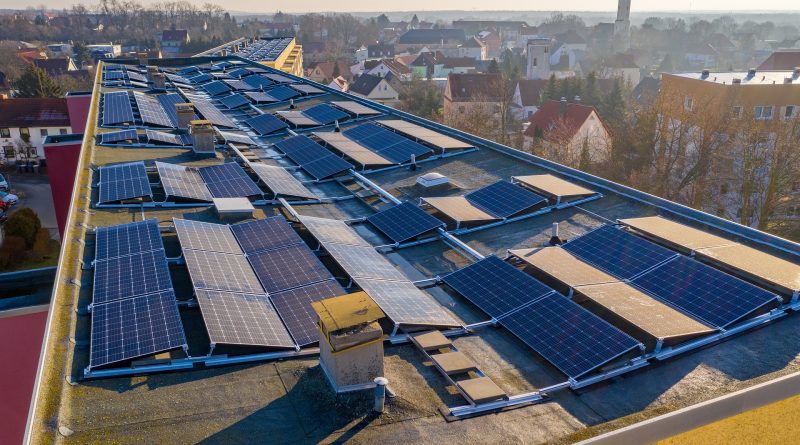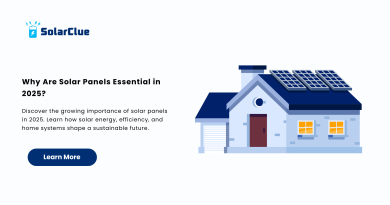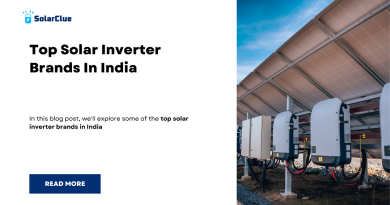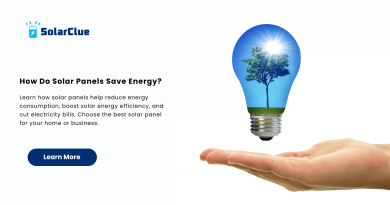On-Grid Solar Power: Do You Need Batteries?
In recent years, solar power has gained immense popularity as a clean and renewable energy source. As the demand for solar energy grows, so does the variety of solar power systems available. One common question that arises when considering a solar power plant installation is whether or not batteries are necessary. In this blog, we will explore the answer to the question: Do I need batteries for an on-grid solar power plant?
Table of Contents
Understanding the basics of an on-grid solar power plant
Before delving into the necessity of batteries, it is important to understand the basics of an on-grid solar power plant. An on-grid, or grid-tied, solar power system is connected to the main electrical grid. This means that the solar power generated by the system is directly fed into the grid, supplying electricity to the home or building while also potentially earning credits for excess energy produced.
In an on-grid solar power plant, solar panels convert sunlight into electricity through the photovoltaic effect. This electricity is then sent to the inverter, which converts it from direct current (DC) to alternating current (AC) that can be used to power household appliances and electronics. The on-grid system is designed to work in sync with the main power grid, allowing for a seamless transition between solar power and grid power.
The role of batteries in an on-grid solar power plant
Unlike off-grid solar power systems, the primary purpose of an on-grid solar power plant is not to store excess energy for later use. Therefore, batteries are not necessary for the basic functioning of an on-grid system. When the solar panels produce more electricity than the immediate demand, the excess power is automatically fed into the grid for others to use, resulting in credit or compensation.
That being said, the option of integrating battery storage into an on-grid solar power plant does exist. These storage solutions allow homeowners to store excess solar energy in batteries for later use, such as during power outages or when energy demand exceeds solar production.
Benefits of battery storage in an on-grid solar power plant
While not essential for an on-grid solar power plant, battery storage offers several benefits:
1. Backup power: Having battery storage means having an alternative power source during blackouts or grid failures. This can be particularly useful in areas prone to power outages.
2. Time-of-use optimization: Depending on your location, electricity rates may vary throughout the day. Battery storage allows you to store excess solar energy generated during low-rate periods and use it during high-rate periods, maximizing your savings.
3. Energy independence: With battery storage, you become less reliant on the grid. This can be a significant advantage if you live in a remote area with unreliable grid supply or if you value energy self-sufficiency and sustainability.
Considerations when deciding to include batteries
While battery storage offers undeniable benefits, there are several factors to consider before deciding to include them in your on-grid solar power plant:
1. Cost: Battery storage adds significant upfront costs to the solar power system installation. The batteries themselves can be expensive, and additional components such as inverters and controls are required. It is important to evaluate your energy needs and budget when considering this option.
2. Maintenance: Batteries require regular maintenance to ensure optimal performance and longevity. This includes monitoring and, in some cases, replacing the batteries after a certain number of cycles. Consider whether you are willing to take on this additional responsibility and factor in the associated costs.
3. Available incentives: Depending on your location, there may be financial incentives or tax credits available for installing battery storage. Research local regulations and incentives to determine if the investment in batteries aligns with your overall financial goals.
Conclusion
While batteries are not essential for the basic functioning of an on-grid solar power plant, they offer additional benefits such as backup power, time-of-use optimization, and energy independence. However, the decision to include batteries should be made after careful consideration of cost, maintenance, and available incentives. By thoroughly evaluating your energy needs, budget, and circumstances, you can determine whether battery storage is a worthwhile addition to your on-grid solar power plant.
Optimize your on-grid solar experience! Explore the need for batteries with SolarClue®. Enhance your solar power plant efficiency and embrace sustainable energy.
Frequently Asked Questions
While not mandatory, batteries can enhance energy storage and usage flexibility in on-grid solar systems.
Batteries store excess energy, ensuring a stable power supply during periods of low solar generation.
While primarily designed for grid-tied operation, batteries can provide limited off-grid functionality during power outages.
Batteries can increase initial costs, but they offer long-term benefits, including reduced reliance on the grid and potential savings.
Various battery technologies, such as lithium-ion and lead-acid, are compatible with on-grid solar systems. The choice depends on specific needs and preferences.
Regular monitoring and occasional maintenance are advisable to ensure optimal performance and longevity.
Yes, it’s possible to retrofit batteries into an existing on-grid solar setup, but it’s essential to ensure compatibility.
The lifespan varies but is generally around 5 to 15 years, depending on the type and usage.
Yes, with the right setup, batteries can store energy and provide backup power during grid outages.
In some regions, incentives and rebates may be available to encourage the integration of energy storage solutions into on-grid solar systems.




